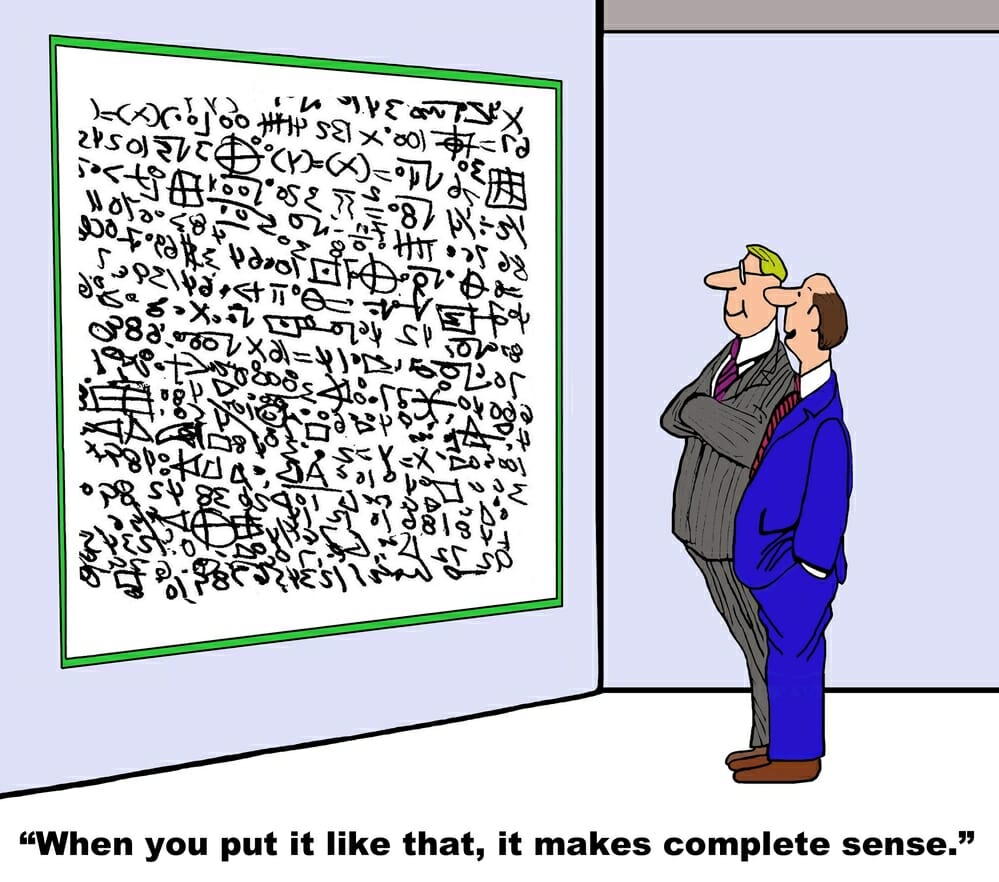
{Read in 4 Minutes} What good is having a document that you can’t understand?
This is something that has perplexed me during my entire career as a Trust and Estates attorney. There are many people who have walked through the door of my office, bringing copies of Wills that they drafted years ago with other attorneys, or using Will drafting forms. Whenever this happens, I always spend some time reading the documents, and then I ask the clients if they are happy with them. The clients generally tell me that they are happy with the documents and that they’re here just because they want to make a change or two. However, when I ask them some specific questions about what their Wills say, very often they get quiet.
Sometimes, they can tell me the broad strokes of an estate plan; for example, that they leave an inheritance to their spouse or to their children but beyond that, they may not know a lot. They may not recall who the Executor is, nor would they know who the Guardian or the Trustees of any continuing Trusts would be. Sometimes, there are also provisions for people who are no longer in their lives, either because they died before the client or they’ve had a falling out with the client. Very often there are some antiquated terms in their Will, which have a legal effect but do not exist in everyday parlance which makes them particularly unreadable.
Unfortunately, legalese is not a dead language*, meaning that the words that we attorneys use and that exist in our New York State statutes to convey ownership upon one’s death are intelligible to us and to the Courts. However, when our clients go to read the Will themselves, perhaps years after they’ve drafted it, they are at a loss for what these very crucial terms mean. This is a real problem. What good is having a legal document if you cannot understand what it means?
As an attorney, I’ve always taken the position that law is a customer service industry and I always try to ensure that my documents are readable to anyone who chooses to read the words I’ve drafted, whether it’d be months, years, or decades later.
I always tell people it’s a good idea to check your Will periodically to make sure that it still reflects your wishes. Take a look at it and see what it says.
- Can you read it?
- Do you know what’s happening to your assets upon your death?
- Do you understand the gist of it or does it contain legal jargon, like:
- per stirpes
- per capita
- In terrorem
All of these terms have very important legal meanings, such as:
- What happens if one of your descendants dies before you?
- Does everyone share equally or not?
- What consequences a disinherited heir (or one who didn’t receive as much as they had hoped) would face if they mount a challenge to the Will?
So, as you can see, very important stuff.
I encourage you to take this challenge — take your Will out of the drawer, have a look at it, and see if you know what it says. See if you can answer the following questions:
- Who will inherit my Estate when I die?
- Who were the alternate beneficiaries who will inherit if my primary beneficiaries die before me?
- Who is my Executor and who is my alternate Executor?
- And are there any conditional bequests?
- Do you treat any special beneficiaries accordingly, such as minors, or people who are on needs-based government entitlements, or even your favorite pet?
Being a satisfied customer means that you understand what the documents say. If you don’t, it might be time to re-evaluate your choice of counsel.
For more information on this topic, please contact me.
* This term describes legal writing which may be cluttered, wordy, indirect, and may include unnecessary technical words or phrases. Historically, legalese is language a lawyer might use in drafting a contract or a pleading but would not use in ordinary conversation. (Wikipedia)

